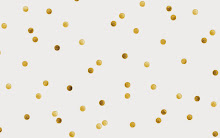Our MaterniT21 test results came back this week and everything looks good. This combined with our 12-week ultrasound makes me feel slightly reassured, although I am still weighing the pros and cons of an amnio in the back of my head (I have a few weeks to decide). We agreed to be surprised about the gender and I'm feeling really excited about waiting. It's fun to ponder whether B will have a sister or a brother. Driving home from school the other day she was telling me about her classmates who have babies (younger siblings). She mentioned a few and then said "We should get a baby at the story." This was completely unprompted by me. I asked whether she wanted a sister or a brother and she answered "a brother." When I asked what his name should be, she suggested we ask Forest (our cat). Obviously he has all of the answers. B will have a baby brother named "Meow".
According to "The Bump", this baby is a lemon this week, which makes me nostalgic for my pregnancy with Baby L / Quinn. We called her "Lemon" throughout my pregnancy (we called Baby B "meatball"). Somehow that fruit just stuck and since our last name begins with "L", it had nice alliteration. I remember how joyful R and I were just to be pregnant and how much fun I had reading about the baby's development each week. I wonder if we'll ever get to a place in this pregnancy where we feel that way -- I know I could get there, but I think I need R to lead the way and I just don't see that happening.
I was just thinking that, like Lemon and Meatball, this baby needs a nickname, but I realized B already took care of that - Meow!
**********
On a completely separate note, this article in the NY Times this week was fascinating. For those of you with POF/POI and/or low AMH, I recommend reading it. Essentially, the article concludes that "AMH doesn't dictate a woman's reproductive potential," although it is one marker used to assess overall fertility. What this study concludes is that "Among women attempting to conceive naturally, diminished ovarian reserve was not associated with infertility; women should be cautioned against using AMH levels to assess their current fertility." These findings are certainly in line with my experience, which is that while I've been pregnant five times, I do have an issue with egg quality (hence two miscarriages) and I don't always ovulate regularly. Plus, a friend who endured numerous IVF cycles while living abroad in various places mentioned to me that doctors outside the United States place a much lower value on AMH as a predictor for getting pregnant than they do on follicle count and FSH.









